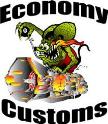Archive for May 2023Your Vehicle's Hissy Fit (AC System)Posted May 28, 2023 8:56 AMWhen you hear hissing sounds coming from your vehicle, you might start thinking the worst. One type of hissing coming from around your air conditioner may be a normal sound, or it could be a sign of serious trouble. First - the normal sound. When you turn off your vehicle, the refrigerant goes from its high-pressure side to the low-pressure side. Some of those noises are normal. But when it hisses all the time, that's another story. One cause could be that the refrigerant is leaking. Air conditioners are fairly complex systems that involve various pumps, hoses, valves and motors. When your air conditioner is cooling, the refrigerant changes from a gas to a liquid and back. That refrigerant is under pressure, and there are many places it can leak from. A hissing sound can also be a failed valve in your air conditioner's compressor. It is what controls the refrigerant's pressurization. It's important to have this fixed fairly quickly after it develops a problem because when it isn't, that can lead to more extensive—and expensive—repairs. If you hear screeching coming from your air conditioner at the same time you hear hissing, your compressor may be on its last legs. It could also be a defective clutch. Any time you hear a noise you haven't routinely heard before, bring your vehicle to us so a technician can check the various components and properly repair the problems. Air conditioning systems are complex and are best handled by a professional with the right tools and equipment. When your AC has a hissy fit, let us cool it off and you at the same time. Economy Transmission and Auto Repair In That Case? (Transfer Case Exchange)Posted May 21, 2023 9:56 AMEver wonder how all-wheel-drive or 4-wheel-drive vehicles get the power from the engine to the front and rear wheels? The magic happens in what's called a transfer case. In some all-wheel-drive vehicles, it's sometime called a power take-off unit, or PTU. Inside the transfer case is a set of gears. And to keep those gears meshing smoothly, they have to be lubricated and kept cool. What does that is called transfer case fluid. Depending on your vehicle's type of transfer case, it is filled with either an automatic transmission fluid, a gear oil that's a bit thicker or transfer case fluid designed to be use for your transfer case. As happens with all lubricating fluids, the transfer case fluid has things in it that break down the older they get. They have corrosion inhibitors, detergents and anti-foaming agents that keep the lubricant from getting air bubbles in it. Transfer cases don't have filters in them to clean out impurities. If you don't have your transfer case fluid exchanged for fresh, you risk damage to the case, and that can run into thousands of dollars. So the wise driver makes sure the fluid is changed according to the manufacturer's recommendations. For many vehicles, that is every 30,000 mi/50,000 km, but some require it more frequently. Your vehicle service facility can advise you on what your vehicle's optimal interval is. During the fluid exchange, any metal filings that may have come off are cleaned off of the drain and fill plugs that are usually magnetized to catch the stray metal pieces. If you hear grinding noises coming from under your vehicle or if it is having trouble shifting gears or going in and out of 4-wheel-drive, those could be signs your transfer case needs service. In that case, have our technicians check it out. The best plan of action? Keep your transfer case fluid maintained and it should keep you heading down the road for years to come. Economy Transmission and Auto Repair A Clean Sweep (Fuel Injector Cleaning)Posted May 14, 2023 10:23 AMYour vehicle gets its power from burning fuel, usually gasoline, and it counts on something called fuel injectors to send gas to the engine in a spray that is easy to ignite. It’s a precise operation, and when it’s working well, you have plenty of power and an efficient engine. But after time, contaminants in the fuel system may prevent the injectors from spraying like they’re supposed to. They can also shoot contaminants into the engine. One sign that could point to dirty fuel injectors is a misfiring engine. Misfires can be caused by several things, so it’s a good idea to bring your vehicle to us so we can trace the cause. Another sign is that your fuel economy has gone downhill or your engine doesn’t have the “pep” it used to. If we discover that your injectors are clogged or not working the way they should, we can clean them to get rid of those contaminants to restore your engine to its top performance. When you bring your vehicle to us, we will connect the flushing equipment, flush out the injectors and reassemble the system. A good time to have fuel injectors inspected is when you bring your vehicle in for routine maintenance. An oil change is an ideal time to have a technician take a close look at your entire fuel delivery system. When you have your fuel injectors cleaned, you may see your mileage go up, your engine performance improve, and your exhaust emissions decrease. Economy Transmission and Auto Repair Straight to the Point (Alignment Signs of Problems)Posted May 7, 2023 10:49 AMIt’s just common sense that your vehicle will drive better if all the wheels are lined up with each other and the road the way the engineers intended. When they’re not, that is called being out of alignment. Here are some signs that your alignment has problems.
We have equipment designed to quickly and accurately measure your vehicle’s alignment. We can make precise adjustments to make sure you are headed straight where you want to go. Have your alignment checked regularly. It can help prevent more serious problems in the future and make your vehicle drive as beautifully as you remember it used to. Economy Transmission and Auto Repair | ||
SearchArchiveFebruary 2010 (2)March 2010 (4) April 2010 (3) May 2010 (4) June 2010 (4) July 2010 (4) August 2010 (4) September 2010 (5) October 2010 (1) November 2010 (5) December 2010 (5) January 2011 (4) February 2011 (4) March 2011 (5) April 2011 (4) May 2011 (4) June 2011 (5) July 2011 (4) August 2011 (21) September 2011 (4) October 2011 (4) November 2011 (5) December 2011 (4) January 2012 (5) February 2012 (4) March 2012 (4) April 2012 (4) May 2012 (2) June 2012 (3) July 2012 (1) August 2012 (1) November 2012 (1) December 2012 (2) March 2013 (1) April 2013 (3) May 2013 (2) October 2013 (5) November 2013 (2) January 2014 (2) February 2014 (3) March 2014 (2) July 2014 (3) August 2014 (7) September 2014 (4) October 2014 (5) November 2014 (4) December 2014 (4) January 2015 (5) February 2015 (4) March 2015 (4) April 2015 (5) May 2015 (2) June 2015 (6) July 2015 (2) September 2015 (2) October 2015 (5) November 2015 (3) December 2015 (3) February 2016 (1) March 2016 (5) April 2016 (4) May 2016 (5) June 2016 (4) July 2016 (5) August 2016 (4) September 2016 (4) October 2016 (5) November 2016 (4) December 2016 (4) January 2017 (5) February 2017 (4) March 2017 (4) April 2017 (4) May 2017 (4) June 2017 (5) July 2017 (5) August 2017 (4) September 2017 (3) October 2017 (5) November 2017 (4) December 2017 (3) January 2018 (5) February 2018 (4) March 2018 (4) April 2018 (5) May 2018 (4) June 2018 (4) July 2018 (5) August 2018 (4) September 2018 (5) October 2018 (4) November 2018 (4) December 2018 (5) January 2019 (4) March 2019 (4) May 2019 (2) June 2019 (5) July 2019 (2) August 2019 (2) September 2019 (4) October 2019 (5) November 2019 (4) December 2019 (5) January 2020 (5) February 2020 (4) March 2020 (5) April 2020 (1) May 2020 (2) July 2020 (2) August 2020 (5) September 2020 (4) October 2020 (4) November 2020 (5) December 2020 (4) January 2021 (6) February 2021 (4) March 2021 (4) April 2021 (4) May 2021 (5) June 2021 (4) July 2021 (4) August 2021 (5) September 2021 (4) October 2021 (5) November 2021 (4) December 2021 (4) January 2022 (6) February 2022 (4) March 2022 (4) April 2022 (4) May 2022 (5) June 2022 (4) July 2022 (3) September 2022 (4) October 2022 (5) November 2022 (4) December 2022 (4) January 2023 (5) February 2023 (4) March 2023 (4) April 2023 (5) May 2023 (4) June 2023 (4) July 2023 (5) August 2023 (4) September 2023 (4) October 2023 (1) January 2024 (1) February 2024 (4) March 2024 (1) | CategoriesAir Conditioning (17)Alignment (17)Alternator (6)Auto Safety (6)Automotive News (8)Battery (20)Brake Service (4)Brakes (22)Cabin Air Filter (8)Check Engine Light (6)Cooling System (19)Customer Detective Work (1)Dashboard (3)Diagnostics (5)Diesel Maintenance (1)Differential Service (4)Drive Train (9)Emergency Items (1)Engine Air Filter (2)Exhaust (12)Fluids (17)Fuel Economy (10)Fuel Pump (1)Fuel Saving Tip: Slow Down (2)Fuel System (47)Headlamps (6)Inspection (11)Keys to a long lasting vehicle (4)Maintenance (53)Monitoring System (3)Oil Change (7)Older Vehicles (4)Parts (7)PCV Valve (2)Safe Driving (1)Safety (6)Serpentine Belt (6)Service Intervals (9)Service Standards (13)Shocks & Struts (9)Shocks and Struts (1)Spark Plugs (2)Steering (15)Suspension (3)Timing Belt (6)Tire Rotation and Balancing (3)Tires (10)Tires and Wheels (40)TPMS (3)Transfer Case Service (1)Transmission (11)Trip Inspection (4)Warranty (2)Water Pump (1)What Customers Should Know (81)Wheel Bearings (1)Windshield Wipers (9)Winter Prep (7)Winter Tires (1) | |








